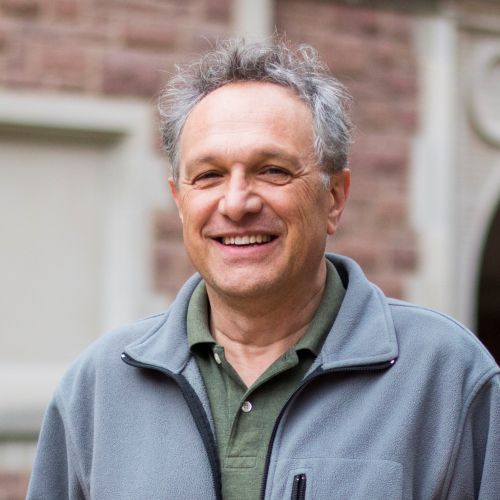Pascal Boyer
Introduction
Pascal Boyer is a Franco-American cognitive anthropologist and evolutionary psychologist best known for his groundbreaking research on how the human mind shapes religion, culture, and morality. Currently serving as the Henry Luce Professor of Individual and Collective Memory at Washington University in St. Louis, Boyer has spent decades exploring the mental mechanisms that make certain beliefs—especially religious and supernatural ones—so persistent across societies. His work bridges anthropology, psychology, and evolutionary biology, reframing religion not as a cultural anomaly but as a predictable outcome of human cognition. By explaining why some ideas are more “contagious” than others, Boyer has transformed how scholars understand the universality of myths, rituals, and moral systems.
Area of Expertise
Pascal Boyer’s primary expertise lies in cognitive anthropology—the study of how mental architecture influences cultural patterns. Within this field, he focuses on the cognitive science of religion, investigating why humans are naturally inclined to imagine gods, spirits, and other supernatural agents. According to Boyer, our evolved mental systems—especially those responsible for agency detection, memory, and theory of mind—predispose us to interpret events as the result of intentional forces. This tendency makes supernatural explanations psychologically appealing and easy to transmit.
He extends this framework to analyze moral psychology, social cooperation, and cultural transmission, arguing that evolved cognitive biases shape everything from economic behavior to collective rituals. Boyer’s fieldwork among the Fang people of Cameroon provided him with firsthand insight into how oral traditions and ritual practices reinforce these cognitive patterns in real-world communities. Through both ethnographic and experimental research, he has shown how religion and culture evolve not through blind imitation but through structured mental processes that favor memorable, minimally counter-intuitive ideas.
Books & Publications
Pascal Boyer is a prolific author whose books have profoundly influenced the scientific study of religion. His most famous work, Religion Explained: The Evolutionary Origins of Religious Thought (2001), argues that religious ideas arise from ordinary cognitive processes rather than unique spiritual experiences. The book became a cornerstone of the cognitive science of religion, inspiring new empirical research across psychology and anthropology.
An earlier work, The Naturalness of Religious Ideas: A Cognitive Theory of Religion (1994), laid the theoretical foundation for this perspective, explaining why some supernatural beliefs persist while others fade. Boyer’s co-edited volume Memory in Mind and Culture (2009, with James V. Wertsch) explores how individual and collective memory interact to shape cultural continuity. His more recent book, Minds Make Societies: How Cognition Explains the World Humans Create (2018), integrates insights from genetics, evolutionary biology, and economics to examine how cognitive mechanisms underpin complex social systems.
In addition to his books, Boyer has published widely in peer-reviewed journals such as Behavioral and Brain Sciences, Trends in Cognitive Sciences, and Cognition. His essays often address ritualized behavior, social trust, and moral emotions, expanding his analysis beyond religion into broader domains of human cooperation and cultural evolution.
Research & Contributions
Pascal Boyer’s research represents a transformative shift in how scholars interpret religion and culture. Rather than treating belief systems as arbitrary cultural inventions, he proposes that they are by-products of ordinary mental processes. Humans, he suggests, evolved specialized mechanisms to detect agency, infer intentions, and remember socially relevant information. When these mechanisms interact, they generate supernatural representations—such as gods or spirits—that are especially memorable because they blend familiarity with a touch of the extraordinary.
Boyer’s “minimally counterintuitive theory” explains why religious ideas often involve beings that violate just a few intuitive expectations (for instance, invisible but humanlike gods). Such concepts are unusual enough to capture attention yet simple enough to be transmitted across generations. His by-product theory of religion argues that these cognitive tendencies did not evolve for religion itself but for survival-related tasks like predicting others’ behavior and avoiding threats.
Through fieldwork in Africa and laboratory studies in Europe and the United States, Boyer has shown how these psychological mechanisms operate universally. He has also applied cognitive frameworks to explain moral judgment, rumor spread, and group cohesion, showing that many social structures emerge from the same mental foundations as religion. In Minds Make Societies, he extends these ideas to topics such as family systems, marriage norms, and intergroup trust, exploring how cognitive evolution continues to shape modern social life.
His empirical approach—combining experimental psychology, ethnographic observation, and computational modeling—has made him one of the most cited figures in contemporary anthropology. Boyer’s theories have influenced related disciplines including archaeology, sociology, and even artificial intelligence, where understanding cognitive bias helps model human-like reasoning.
Awards & Recognitions
Throughout his career, Pascal Boyer has received numerous honors acknowledging his influence in both the social and cognitive sciences. He was awarded the John Simon Guggenheim Fellowship in 2011, selected from thousands of nominees for his pioneering work on cultural transmission and the psychology of religion. Boyer is also a Fellow of the American Academy of Arts and Sciences, one of the highest academic distinctions in the United States.
In addition to his endowed chair at Washington University, Boyer has held visiting positions at institutions including Cambridge University, the University of California, Santa Barbara, and the University of Lyon. His lectures and collaborations span Europe, North America, and Africa, reflecting the global relevance of his research. In 2022, he received a grant from the Templeton Religion Trust to further investigate historical and contemporary forms of religious cognition. These achievements underscore Boyer’s position as a leading figure in understanding the evolutionary and psychological roots of human culture.
Social Media Profiles
Although not highly active on popular social platforms, Pascal Boyer maintains a professional and academic presence online. His official website (pascalboyer.net) provides access to his research updates, publications, and course materials. His Google Scholar profile lists hundreds of publications with over 17,000 citations, reflecting his global academic impact. Boyer is also featured on platforms such as ResearchGate, Research.com, and Edge.org, where he discusses ongoing debates in anthropology, cognition, and philosophy of science.
While his Facebook and Instagram activity is limited, these accounts occasionally share information about his books, speaking engagements, and collaborations. His online presence primarily serves academic audiences interested in the intersection of cognitive science, evolution, and cultural theory.
Bibliographic Sources
Boyer, P. (1990). Tradition as truth and communication: A cognitive description of traditional discourse. Cambridge University Press.
Boyer, P. (1994). The naturalness of religious ideas: A cognitive theory of religion. University of California Press.
Boyer, P. (2001). Religion explained: The evolutionary origins of religious thought. Basic Books.
Boyer, P., & Wertsch, J. V. (Eds.). (2009). Memory in mind and culture. Cambridge University Press.
Boyer, P. (2018). Minds make societies: How cognition explains the world humans create. Yale University Press.
Washington University in St. Louis. (n.d.). Pascal Boyer – Faculty profile. Department of Anthropology. Retrieved November 4, 2025, from https://anthropology.wustl.edu/people/pascal-boyer
Templeton Religion Trust. (2022). Pascal Boyer grant announcement. Retrieved November 4, 2025, from https://templetonreligiontrust.org/
Research.com. (n.d.). Pascal Boyer – Research profile. Retrieved November 4, 2025, from https://research.com/scientists/pascal-boyer
Edge.org. (n.d.). Pascal Boyer profile and essays. Retrieved November 4, 2025, from https://www.edge.org/memberbio/pascal_boyer




